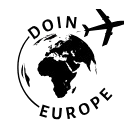How to Get Certified as a Nutrition Coach Online in Switzerland
Back when I first explored the idea of moving into wellness coaching, it honestly felt like climbing an Alp (fitting, right?). Everyone talks about the “easy” path to coaching. In reality, there’s often confusion about Swiss certification—what’s officially recognized, what’s actually respected by employers, and, here’s the kicker, whether an “online” credential truly flies. Over the years, as I navigated both the Swiss and broader European health education landscape, I realized this: trustworthy, flexible online nutrition coach certification is absolutely within your reach (yes, even in Switzerland)—but only if you know how to weave through rules, language requirements, and the sea of international and local options. Today, I want to walk you through exactly how to do it, pitfalls and all—so let’s get fully real about the Swiss process, expectations, and what *actually* works for career-minded, internationally savvy professionals. Sound like your cup of herbal tea? Let’s go.
Swiss Pathways: How Nutrition Coaching Certification Works
So, how does someone actually become a certified nutrition coach online in Switzerland? Let’s demystify it, one human-to-human step at a time.
If you want to legally practice as a nutrition coach in Switzerland (or open your own coaching business), you need a recognized certification from a reputable body (Swiss, EU, or select international organizations), a basic understanding of Swiss health law, insurance know-how, and, ideally, demonstrated continuing education. Most coach certifications accepted in Switzerland can now be completed 100% online, though practical experience is still strongly encouraged.1
But I know what you’re really asking: “Will a remote credential from abroad hold water in Zürich or Lausanne? Or do I need to find a Swiss-only school?” Honestly, it’s less about your location and more about accreditation and alignment with Swiss industry norms. In my early days, I spent hours comparing European, American, and Swiss institutes, frustrated by the alphabet soup of credentials: BZGT, SVDE, EQF, NASM, and more. Here’s what I learned: most Swiss employers (and insurance partners) look for recognized certification by either a Swiss health body (like the Berufsverband für Ernährung und Diätetik SVDE) or widely accepted EU/US certifications that demonstrate alignment with Swiss learning objectives and scope-of-practice rules.2
Industry Recognition & Legality: What’s Actually Accepted?
Let’s get honest: Switzerland doesn’t (yet) have a unified, government-mandated “nutrition coach” license. Instead, Swiss law distinguishes between “Ernährungsberater/in” (dietitian), which is a regulated healthcare role, and “nutrition coach”–a less regulated but rapidly growing sector. That means you can legally work as a nutrition coach with the right private or industry certification, provided you don’t cross into protected healthcare acts (like diagnosing or providing therapy for medical conditions).3 I’ll admit, when I started, I worried about accidentally “overstepping” as a coach and getting myself into regulatory hot water. What actually helped was doing a short “Swiss Health Law & Ethics” module (offered by several online providers now), which I genuinely recommend—it clears up so many “grey area” doubts and sets you up as a professional with integrity.
Switzerland has one of the world’s highest densities of nutrition coaches per capita, yet only about 15% are formally regulated as dietitians. Many Swiss cantons still allow practice with reputable private certification, provided you follow advertising rules and ethical guidelines.4
The Real Benefits of Online Nutrition Certification—From My Experience
Now, here’s where things get interesting. When people first hear “online certification,” they sometimes still picture impersonal video lectures and automated quizzes—a far cry from the dynamic learning everyone wants. Over the last five years, I’ve seen online Swiss and international nutrition coach programs radically evolve: real-time coaching labs, Swiss-based case studies, peer forums, direct mentorship, and flexible scheduling have become the new norm. Honestly, for most of my colleagues (especially those balancing career switches or parenting), the ability to learn on-demand and at their own pace has been a total game-changer.5
I once thought I’d miss out by not sitting in a “live Swiss classroom.” But after completing my third certification online—where I accessed Swiss-specific science, built a network of local and international peers, and even held virtual “practice sessions” with Geneva-based clients—I realised: online does not mean “lower quality.” It’s just a different skillset, with surprising benefits for real Swiss practice.
Top Online Nutrition Coach Certification Programs (Swiss-Approved & International)
Now for the part where most people get overwhelmed: which program should you choose? And which are recognized in Switzerland? Years ago I fell into the “Google rabbit hole”—comparing dozens of websites, each boasting their certification is the “most recognized in Europe.” (Sound familiar?) Here’s what I now recommend to anyone serious about online nutrition coach certification for the Swiss market:
- Swiss-Based Programs: Schools like SVDE, BZGT, and HWS offer coach-level courses with uniquely Swiss content, often with at least 60–70% online learning.6
- Internationally Accredited Courses: Programs like Precision Nutrition (PN1), NASM Certified Nutrition Coach, and the ISSA Nutritionist Certification are respected by many Swiss employers and private health insurers (provided you can prove learning outcomes match Swiss scope-of-practice).
- Hybrid/Blended Pathways: The European Qualifications Framework (EQF) is increasingly referenced by Swiss institutions—if your course is EQF-accredited or listed, you’re generally safer for cross-border recognition.7
- Language-Specific Offerings: Many Swiss-German speakers opt for Fernstudium (distance learning) from German providers (such as IST or OTL), which increasingly offer recognition among Swiss wellness employers, especially when supported by local mentoring modules.
This is just a starting point—I always encourage prospective coaches to contact more than one provider, request sample modules (if available), and ask about Swiss graduate career outcomes. Nothing beats direct contact to assess program fit.
Swiss Case Study: Real Student Paths and Outcomes
Honestly, the decision often becomes clearer when you see real stories (not just marketing blurbs). Let’s look at Janine’s journey—one of my favorite former colleagues, who started her nutrition coaching dream from a mountain village in the canton of Vaud.
Janine’s experience is echoed across Swiss cantons. Others, like David (from Basel), leveraged an international credential (ISSA) for flexibility, then topped up his CV with a Swiss-recognized ethics module and local first aid certification. His biggest win? Attracting both expat and Swiss-German clients in hybrid settings—and avoiding commutes across the country.
My point: if your long-term plan is to practice privately, partner with Swiss gyms or wellness platforms, or even expand into online consulting, these pathways are all viable—with the right plan and local adaptation.8
Eligibility Requirements & Language Considerations
Here’s where Swiss specificity comes in. While most online programs are open to anyone 18+, the real test comes in two areas: language and prerequisites. Let me break down the most common requirements and pitfalls I’ve learned along the way:
- Language Proficiency: Even if your certification is English-based (think: Precision Nutrition), working in Switzerland means you often need at least basic working knowledge of German, French, or Italian.9
- Prior Education: Most Swiss-accredited courses require a secondary school leaving certificate (Matura or equivalent), but flexible online providers often waive this with a strong personal statement or prerequisite science course.
- Proof of Swiss Residence: Some local courses (especially those with insurance partnerships) require proof of Swiss residence or work permit status—I made the rookie mistake early on of assuming international-only schools would always be enough.
- First Aid/CPR: Not always mandatory for initial certification, but a strong plus for both Swiss insurance partnerships and gym contracts.
Ask every provider not just about “Swiss recognition,” but about placement assistance within Switzerland, local mentorship options, and language-specific client resources. These extras made all the difference in my early success (and sanity) as a new grad coach.

How to Choose the Right Online Program (Swiss and International Considerations)
I’ll be completely honest—this section is where most future coaches (my past self included) get stuck. Too many choices, not enough transparency. Here’s how I now advise anyone scoping out online nutrition coach programs for Swiss practice:
- Check Accreditation (Swiss and International): Does the program have Swiss Berufsverband, EQF, NASM, or ISSN alignment? Ask for explicit proof.
- Assess Local Fit: Are case studies, ethics, and client resources tailored for Swiss settings (insurance models, health law, multi-lingual clients)?
- Hybrid Support: Will you get both digital and live (even if virtual) mentorship, exam prep, and business coaching?
- Community: Does the network (alumni, tutors, client partners) include current Swiss practitioners?
Don’t just compare websites. Reach out to Swiss alumni, ask for calls with faculty, and join local forums (like Swiss Wellness Pros on LinkedIn) for brutally honest feedback about career outcomes. Genuine community = long-term success.10
Costs, Timeline & Financial Aid: The Full Swiss Breakdown
Let’s bust a myth: Swiss-friendly online nutrition coach certification doesn’t have to be out-of-reach price-wise. That said, costs and financial aid look different here than in the US or UK. I learned this (the hard way) trying to compare CHF and USD pricing, factoring in “hidden” extras like exam fees, mentorship costs, and translation charges.
From my perspective, duration and value-for-money matter more than “quick wins.” Swiss clients, in particular, tend to do more background checks, so a cut-rate certificate without mentoring or exam rigor usually isn’t worth it long term.11
- Plan on 8–12 months for thorough, career-ready online certification (unless you’re stacking prior credits).
- Build in time for language skills, business admin, and first aid updates.
- Can’t afford “full price”? Many providers now offer Swiss alumni discounts, sliding-scale fees, or partner employer sponsorships.
Feature: Quick Steps Checklist—Becoming a Nutrition Coach in Switzerland
- Check eligibility and Swiss language requirements
- Select and verify an online program with Swiss/EU recognition
- Complete course + local ethics/practical modules
- Pass online (and practical, if required) assessment
- Register as a coach in your canton if required, set up insurance, and begin professional practice
Certification is only the beginning—your long-term career results in Switzerland depend on ongoing education, local networking, and adapting your approach to Swiss culture and client needs.
Swiss Nutrition Coach FAQs (What Everyone Asks—Honestly Answered)
- Will my foreign (US/EU/UK) online certificate be recognized in Switzerland?
Often yes—for non-dietitian “coach” roles, provided it’s from a reputable, internationally accredited organization and you avoid protected healthcare acts. Always ask about Swiss placement and alumni success rates.12 - How do I practice legally as a nutrition coach in Switzerland?
Legally, avoid “medical nutrition therapy” (diagnosis/treatment), complete a recognized private certification, and follow cantonal advertising rules. Many coaches also voluntarily join ethics associations. - Do I need to speak German/French/Italian fluently?
Not always—but you’ll access more clients and higher earnings if you can coach in at least one Swiss official language.13 - Can I get insurance reimbursement for my clients?
Sometimes—certain Swiss health insurers recognize coaches certified through approved organizations (especially SVDE), but most cover only registered dietitians for strict medical cases.14 - What does the Swiss market look like for new coaches in 2024?
Growing rapidly—especially in wellness studios, corporate wellness, remote consulting, and hybrid gym settings.
Next Steps & How to Stand Out in the Swiss Market
What really strikes me, looking back, is how much more opportunity there is for nutrition coaches in Switzerland than most people realize. But let me be honest: just holding a certificate (even a great one) isn’t going to make you stand out automatically. Here’s where the real growth and satisfaction comes in—embracing ongoing learning, networking, and an evidence-based, multilingual approach that fits the Swiss context.
Many Swiss cantons allow nutrition coaches to register as self-employed even if their initial credential is foreign—provided they complete a short “Swiss Health Law” compliance session and document local insurance/residence status.15
- Continue Your Education — Enroll in micro-courses on sports nutrition, women’s health, or digital coaching tools to expand your offerings (Swiss clients love evidenced-based specialization).
- Get Involved Locally — Join professional groups like SVDE, Swiss Wellness Pros, or your canton’s wellness registry for visibility and referrals.
- Stay Bilingual (or More) — Practice your client languages—being able to coach in German, French, or Italian remains a huge boost to credibility and reach.
- Network Wisely — Attend relevant webinars, wellness fairs, and Swiss online meetups, even before graduation. I met my first clients at a Basel nutrition talk—completely by chance!
If you want to build a truly thriving nutrition coaching career in Switzerland, don’t wait—reach out to a current Swiss coach, review the accredited program list, and schedule a discovery call. Real Swiss practice starts not just with the right credential, but with authentic relationships and a learning mindset.
References
Works Cited & Further Reading



